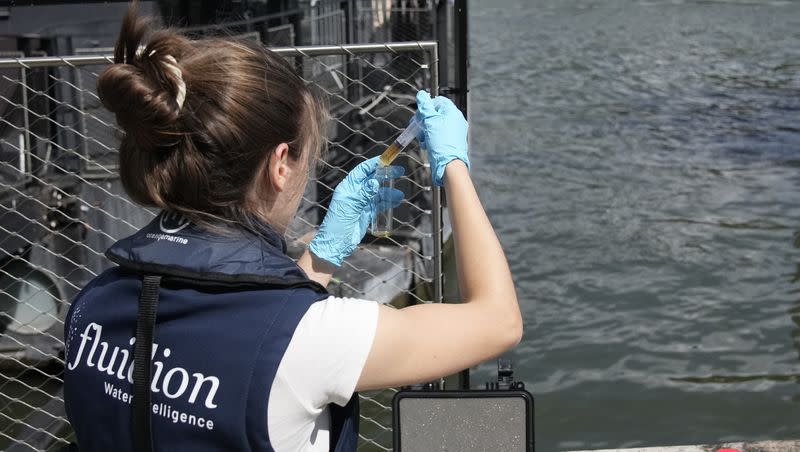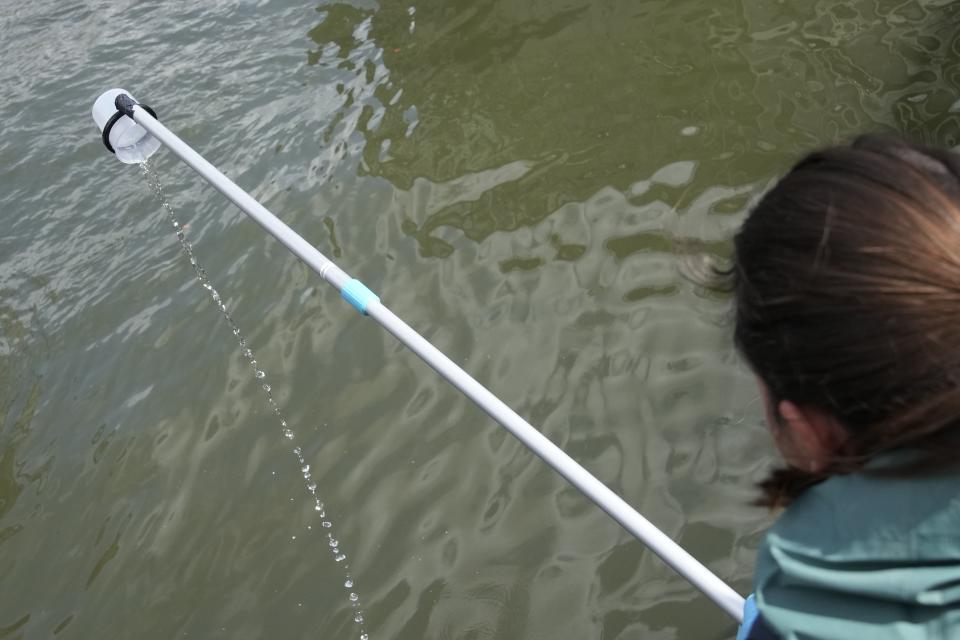Here’s why a Paris Olympic test event in the Seine had to be canceled

The cancellation of a swimming event in Paris’ River Seine is the latest setback for organizers of the 2024 Summer Games, already under investigation by French authorities for alleged corruption.
Last weekend’s Open Water Swimming World Cup was supposed to be a test event for the next Olympics, where the iconic river that winds through France’s capital city is set to play a major role.
But last-minute testing showed “the water quality in the Seine has remained below acceptable standards for safeguarding swimmers’ health,” the French Swimming Federation said in a statement Sunday.
Related
The contamination was blamed by Paris organizers on “exceptional” weather conditions, with the Paris region being hit with the heaviest summer rainfall since 1965, according to The Associated Press.
The downpour caused overflows of untreated sewage into the venue for marathon swimming at the 2024 Olympics and the swimming leg of the triathlon for both the Olympics and the Paralympics that follow.
A triathlon test event set to attract athletes from around the globe to the City of Light starting Thursday is still listed on the World Triathlon website as holding the swimming portion of the competition “in the beautiful Seine river.”
Paris’ bid to host a third Summer Games included a pitch for holding events in the Seine. Opening ceremonies are set to take place on the river, with athletes traveling by boat rather than parading into a stadium.
Multiple swimming events were held in the Seine during Paris’ first Olympics, in 1900, according to The New York Times, although swimming in the river was banned a year before the city hosted a second time, in 1924.
More than $1.5 billion is being spent to stop untreated water from being dumped into the river, including during rainstorms, with the hope that the Seine can not just be ready for next year’s Olympics but open in spots for public swimming starting in 2025.

Already, Paris organizers and city authorities have said water quality “ has regularly reached the levels required for competitions to be held on the dedicated site, demonstrating the significant progress made.”
But even before the event cancellation, there were skeptics of the plan.
“I wouldn’t swim in that water at gunpoint,” International Herald Tribune Editor Mort Rosenblum was quoted as saying in a July CNN opinion piece. Rosenblum has had a houseboat barge on the river for at least four decades.
The author of the piece, David Andelman, a former foreign correspondent for The New York Times and CBS News, wished Olympic organizers good luck but said “nothing now could get me into the river.”
Related
Water quality isn’t the only issue facing the organizers of the next Olympics.
In June, French police raided their headquarters and other sites in connection with “two ‘preliminary investigations’ into financial improprieties with contracts and public funds,” CNN reported at the time.
The head of the Paris organizing committee, Tony Estanguet, told the AP a week later he expected the investigation to continue even beyond the 2024 Summer Games. “We’ll be inspected intensely, criticized hugely,” he said.
An International Olympic Committee has called the situation “very tense” and “very difficult.”
Also causing concern is whether Russians and Belarusians will be allowed by the IOC to compete at the Paris Games as “neutral athletes” despite Russia’s ongoing invasion of Ukraine with the help of neighboring Belarus.
Related
Russia, Belarus aren’t on the guest list for the 2024 Summer Games in Paris
Why there may still be Russian, Belarusian athletes at the Paris Olympics
A decision is not expected for some time, but the IOC has encouraged sports federations to permit Russian and Belarusian athletes to compete in Olympic qualifying events without flags, anthems, team colors or other signifiers of their home countries.
That led to some problems, including the disqualification of a Ukrainian fencer who declined to shake the hand of her defeated Russian opponent, choosing instead to offer her blade.
The Ukrainian fencer, Olga Kharlan, was later guaranteed a place at the Paris Olympics by IOC President Thomas Bach. Bach has repeatedly defended the IOC’s reversal of an earlier policy banning Russians and Belarusians from competition.

